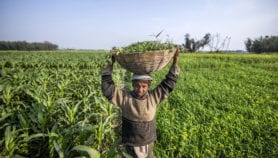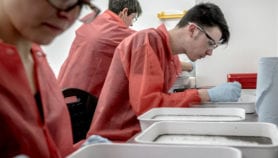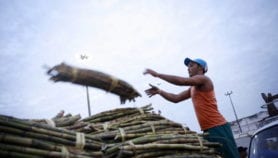By: Ochieng’ Ogodo
Send to a friend
The details you provide on this page will not be used to send unsolicited email, and will not be sold to a 3rd party. See privacy policy.
[NAIROBI] Kenya last week became the first African country other than South Africa to plant genetically modified (GM) maize in open fields.
The seeds, modified to resist insect pests called stem borers, were planted in the first in a series of confined field trials at the Kenya Agricultural Research Institute (KARI) station in Kiboko on Friday (27 May).
KARI director Romano Kiome hailed the move as an example of using science to address the needs of the people. He pointed out that the amount of maize Kenya loses to stem borers each year — about 400,000 tonnes — is nearly the same amount that the country imports annually.
Experiments with the insect-resistant maize have been taking place at the KARI Biotechnology Center in a ‘biosafety’ greenhouse that opened in June 2004 (see US$12 million greenhouse signals Kenyan GM commitment).
Stephen Mugo, one of the project leaders, said the field trials would be used to determine how effective the insect-resistant maize is at reducing the damage made by stem borers.
If successful, the GM plants will be interbred with Kenyan maize lines to produce varieties adapted to local growing conditions.
According to Odhiambo MakOloo, a Nairobi-based environmental lawyer, Kenya should not be starting the open field trials until it has adopted laws to regulate genetically modified organisms.
MakOloo says that introducing GM crops without a regulatory framework could be dangerous both to human beings and the environment.
Musyoki Joseph, a farmer from Machakos district, says, however, that the move could help to address food security in Kenya. “We must embrace technological advancements taking place in agriculture as result of cutting edge science.”
Joseph said stem borers were a major issue for maize growers and if the trials succeed, the transgenic maize could stop farmers losing large sums of money.
The ‘open quarantine’ field trials that began last week are being undertaken by the Insect Resistant Maize for Africa project, a joint research project of KARI and the International Maize and Wheat Improvement Center (CIMMYT) that is supported by the Syngenta Foundation for Sustainable Agriculture and the Rockefeller Foundation.Read more about GM crops in SciDev.Net’s GM crops dossier.













